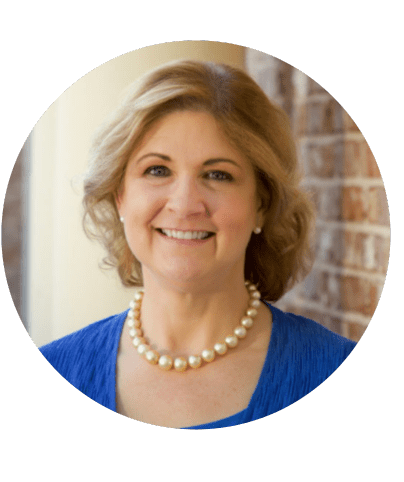Someone’s Gotta Say It
Insights from 30 Years at the Forefront of Medical Care for Victims of Sexual Harms

By Marina Sampanes Peed
Executive Director of Mosaic Georgia

We are thrilled to celebrate a significant milestone at Mosaic Georgia – 30 years of providing exceptional medical care for victims of sexual harms. Since July 1993, we have been at the forefront of delivering trauma-informed forensic medical services, setting a new standard of care in Georgia. As we reflect on our journey, we want to share some valuable insights and observations with you.
Our mission began when the Gwinnett Rape Crisis Center was founded by a dedicated hospital volunteer named Ann Smiley. Our volunteer advocates would respond to calls from the hospital to provide support to survivors who disclosed sexual assault. However, we realized that there were opportunities to improve the process. By shifting the response away from hospitals and establishing a center focused on advocacy support and medical forensic care, we could ensure quicker, more private care for survivors while enabling law enforcement to investigate promptly.
Our specially-trained Sexual Assault Nurse/Forensic Examiners (SANEs) have conducted over 6,000 sexual assault exams, catering to patients of all ages and genders. By offering specialized care, including prevention of sexually transmitted infections or pregnancy resulting from rape, we ensure that every survivor has access to the support they need. Witnessing the relief in survivors’ eyes when they realize they won’t have to worry about these additional costs is truly heartwarming.
This community-based approach benefits everyone involved. All our services are provided at no charge to the victims or local law enforcement. We believe that access to quality care should never be hindered by financial constraints. However, we face sustainability challenges as crime victim services funding decreases while the costs of delivering 24/7 response increase. The work we do at Mosaic Georgia sits at the intersection of public safety, healthcare, and addressing the long-term harms caused by sexual violence.
Looking at the larger picture, we see our work is far from done. Despite the #metoo movement and numerous media reports of high-profile cases, fewer victims are coming forward to report these crimes to the police (2021 estimate is only 25% of sexual assaults for people age 12 and older are reported to police). Myths and misunderstandings surrounding sexual violence persist. Our culture is inundated with sexualized images of girls and women and harmful definitions of masculinity. Additionally, instances of child sexual abuse, incest, and commercial sexual exploitation of children and youth are on the rise.
The expansion of high-speed internet and the world wide web has facilitated predators in exploiting vulnerable individuals. Arrests and prosecution of perpetrators also remain lower compared to other violent crimes. It is clear that there is still much work to be done to address these pressing issues.
At Mosaic Georgia, we are committed to making a difference through education and training. Our SANE Success Institute offers comprehensive programs that equip Sexual Assault Nurse Examiners (SANEs) with the knowledge, clinical skills, and court testimony preparation they need. In response to the pandemic, we launched PRO/SANE, an online peer review platform that allows SANEs to learn from one another and discuss unique situations they encounter in their practice. Through these initiatives, we foster shared learning, skill development, and a supportive community of professionals across Georgia.
Combating sexual harms requires a collective effort from our community. It is crucial that we support survivors, hold perpetrators accountable, and ensure that consent and boundaries are understood by all. Together, let us break the silence and create a world where every individual is safe, respected, and free from the devastating impacts of sexual violence.
Thank you for being a part of the Mosaic Georgia community. Your support and involvement are instrumental in our continued efforts to make a lasting difference.




